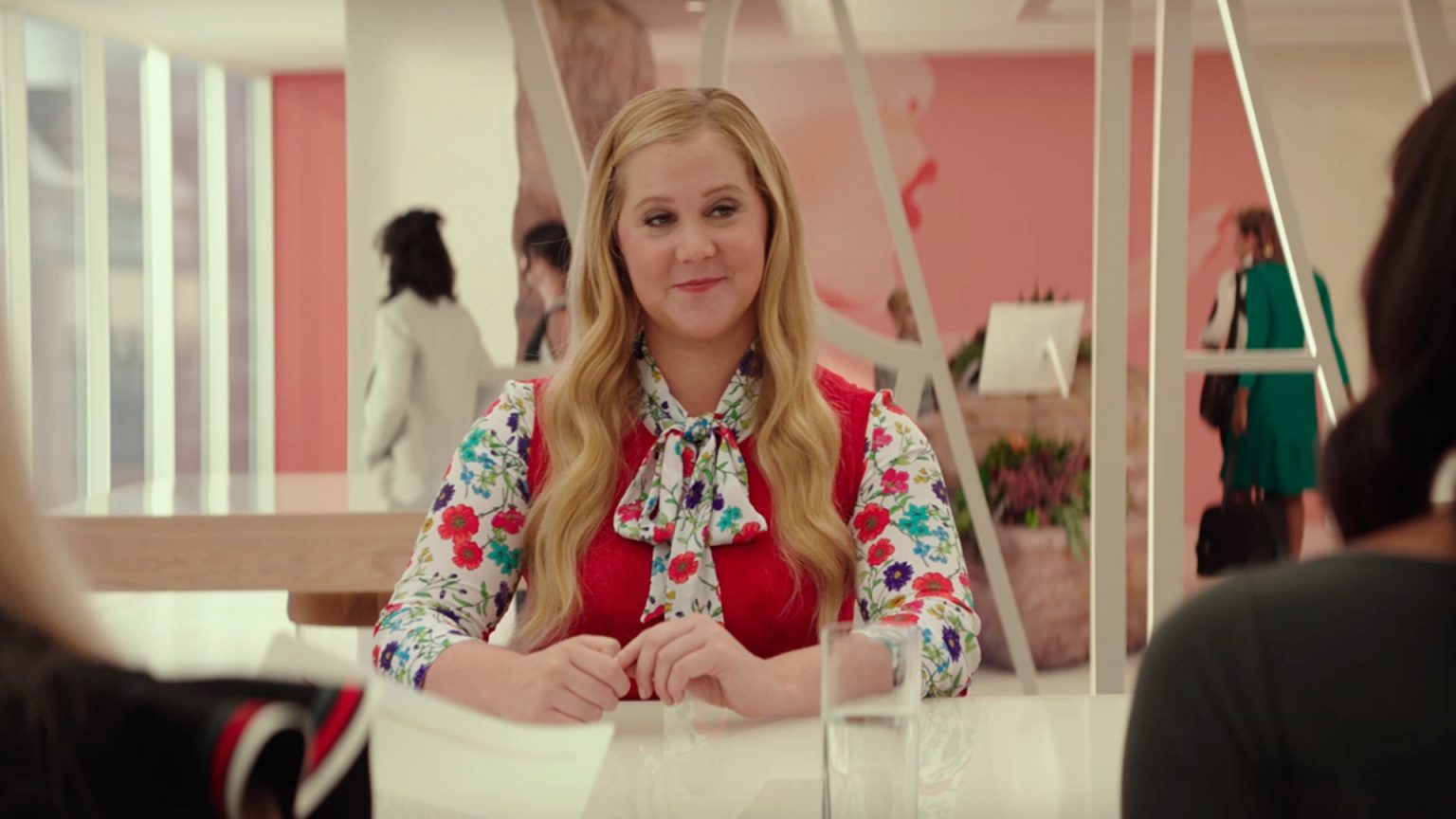Every two decades or so, mainstream Hollywood attempts to make a movie with a heartwarming insight into the human condition, wrapped in a mélange of cultural humor based on power dynamics, representation, and privilege. The intentions are there, and often so is the talent, but while these movies endeavor to be “of the moment,” they always seem far behind the times.
Both 2001s Shallow Hal, directed by the Farrelly brothers, and 2018s I Feel Pretty, directed by Abby Kohn and Marc Silverstein, are examples of this kind of movie, and specifically, both are attempts to critique that vague monolith that is “beauty standards” by proving that those standards are, fundamentally, an illusion. Shallow Hal is about a superficial man (Jack Black) who gets hypnotized in an elevator by self-help guru Tony Robbins (no, really) and falls for Rosemary, a morbidly obese woman who appears to him as conventionally thin and attractive. Both versions of Rosemary are played by Gwyneth Paltrow in and out of a fat suit—which, in hindsight, is a pretty unfortunate look for a “wellness” advocate. I Feel Pretty is about Renee (Amy Schumer), a woman with low self-esteem who sustains a head injury at SoulCycle (no, really) that makes her believe that she is gorgeous and high-functioning, even though her physical appearance hasn’t changed. In both cases, the characters are under a kind of spell that allows them to suddenly shift their perception. This shift opens up new possibilities for happiness and fulfillment in their lives. In both movies, the humor draws from the disparity between the characters’ subjective gaze and the cultural gaze, or how they perceive value in themselves and others versus the “norm.” But in both cases, these movies fall short of their liberating ambitions.
The biggest problem with Shallow Hal is that the raunchy Farrelly brothers, best known for Dumb and Dumber, want to have their cake and eat it too, so to speak; on one hand, they criticize superficiality and “fatphobia,” while also milking it for cheap physical comedy. This undermines the moral of the movie. A subplot involving Seinfeld’s Jason Alexander and a vestigial tail further muddies the waters, seeming to put forth the theory that “everyone is somebody’s fetish,” which is a little bit different and a lot less woke than the idea that “people deserve to be valued and loved based on their character and not their outward appearance.”
However, at least in Shallow Hal, the burden of self-interrogation and transformation is on Jack Black. I Feel Pretty, on the other hand, squarely places it on the shoulders of women themselves, with the message that it’s their confidence, not contemporary society’s still-virulent “fatphobia,” that needs fixing. This kind of “pull yourself up by the bootstraps” mentality isn’t specific to weight, of course; it exists in dialogue about gender, race, and class disparity. There’s a meme going around my feeds that goes like this: “Maybe you manifested it. Maybe it’s white privilege.” Would the kind of magic that Schumer’s Renee weaves with her newfound confidence be possible if she were black, broke, or differently-abled? Would audiences accept it? This is the heart of the matter.
While Shallow Hal borrows heavily from the mean-spirited humor of politically incorrect and “inspirational” 80s movies (Revenge of the Nerds and Soul Man come to mind), I Feel Pretty works very hard to make us forget that mountains of data—to say nothing of seventeen harrowing seasons of The Biggest Loser—exist to counter its cheery, mayonnaise-flavored, girl-power message (served with a heaping side of gaslighting). Yes, beauty standards are so ridiculous that even fashion models and music videos vixen Emily Ratajkowski suffers from low self-esteem. But what I Feel Pretty refuses to acknowledge is how that ridiculousness doesn’t make those “standards” (which are deeply entwined with our ideas of virtue, productivity, and temperament) any less tangible, harmful, or unevenly applied. Clearly, we’re going to have to wait another twenty years for a movie that’s willing to tackle “thin privilege,” culturally-ingrained desires, and “fatphobia” with an intersectional lens, and without resorting to humor at the expense of the person with whom we’re supposed to empathize. Of course, by then, we’ll all probably be disembodied consciousnesses downloaded into cyberspace, and the complex politics of inhabiting bodies will be a distant memory. Hey, a girl can dream!




